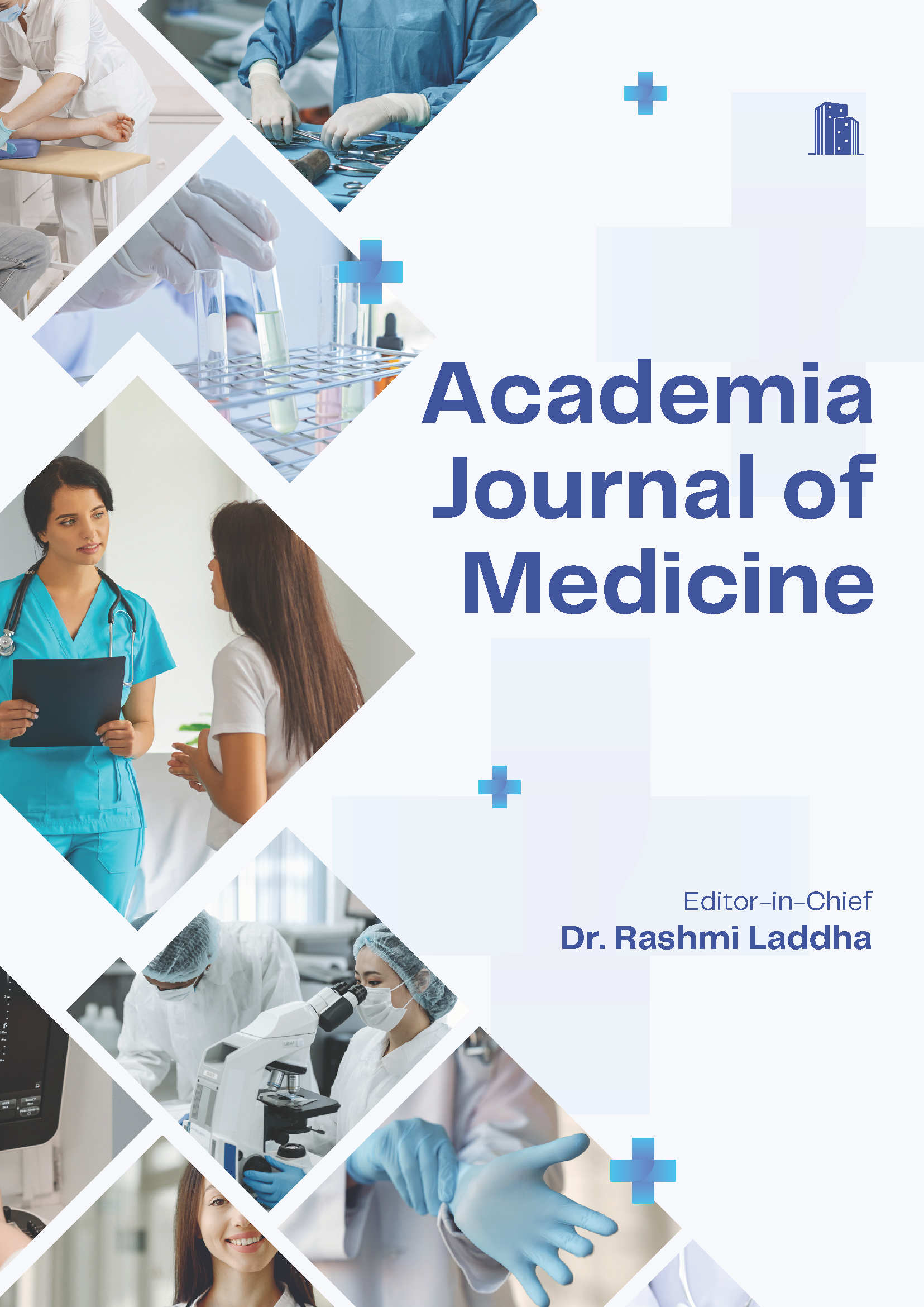Etiology and Outcomes in Elderly Patients Admitted For Acute Infections
Keywords:
Aged, Critical Care, ICU, Mortality, SepsisAbstract
Background: Infectious diseases are a major cause of mortality in elderly. The present study aimed to assess various acute infections in elderly population admitting in our department and factors which are associated with their clinical outcomes. Subjects and Methods: Hundred patients, aged more than 65 years of age, having fever of less than 7 days’ duration or having symptoms of any of the major system admitted in our department were included. Detailed history, clinical and laboratory work-up was done to diagnose the cause of infection. Mortality of the patients during hospital stay was noted and factors associated with it were ascertained from statistical analysis. Results: Mean age of the patients was 75.84 years, two-thirds being males. Hypertension and diabetes mellitus were the most common co morbidities. Pulmonary infections accounted for majority of the infections (43%), urinary tract infections were the second most common cause of acute infection. Gastrointestinal infections (10%), central nervous system infections (6%), skin infections (4%) were other less common causes. During hospitalization, the most common complication was respiratory failure. Overall, 15 patients died during hospital stay. We found higher APACHE-II score and presence of pulmonary infections to be significantly associated with in-hospital mortality. Conclusion: A multi disciplinary management of elderly patients with infections is required.
Downloads
References
1. Sadighi Akha AA. Aging and the immune system: an overview. J Immunol Methods. 2018; 463:21–6.
2. Elias R, Hartshorn K, Rahma O, Lin N, Snyder-Cappione JE. Aging, immune senescence, and immunotherapy: a comprehensive review. Semin Oncol. 2018;45:187–200.
3. Knaus WA, Draper EA, Wagner DP, Zimmerman JE. APACHE II: a severity of disease classification system. Critical care medicine. 1985;13(10):818-29.
4. Blasi F, Akova M, Bonanni P, Dartois N, Sauty E, Webber C, et al. Community- acquired pneumonia in adults: Highlighting missed opportunities for vaccination. Eur J Intern Med. 2017; 37:13–8.
5. Yoshikawa TT, Norman DC. Geriatric infectious diseases: current concepts on diagnosis and management. J Am Geriatr Soc. 2017:65:631–41.
6. Cillóniz C, Ewig S, Ferrer M, Polverino E, Gabarrús A, de la Bellacasa JP, et al. Community-acquired polymicrobial pneumonia in the intensive care unit: aetiology and prognosis. Crit Care. 2011; 15:
R209.
7. Meyer KC. Impact of aging on the lung. InSeminars in respiratory and critical care medicine. 2010;31(05):519-520
8. Christensen KL, Holman RC, Steiner CA, Sejvar JJ, Stoll BJ, Schonberger LB. Infectious disease hospitalizations in the United States. Clin Infect Dis. 2009; 49:1025–35
9. Venkatesh RK, Prabhu MM, Nandakumar K, RPai KS. Urinary tract infection treatment pattern of elderly patients in a tertiary hospital setup in south India: a prospective study. Journal of Young Pharmacists. 2016;8(2):108.
10. Martin-Loeches I, Guia MC, Vallecoccia MS, Suarez D, Ibarz M, Irazabal M, Ferrer R, Artigas A. Risk factors for mortality in elderly and very elderly critically ill patients with sepsis: a prospective, observational, multicenter cohort study. Annals of intensive care. 2019;9(1):26.
11. Palomba H, Corrêa TD, Silva E, Pardini A, Assuncao MS. Comparative analysis of survival between elderly and non-elderly severe sepsis and septic shock resuscitated patients. Einstein (Sao Paulo). 2015;13(3):357-63.
